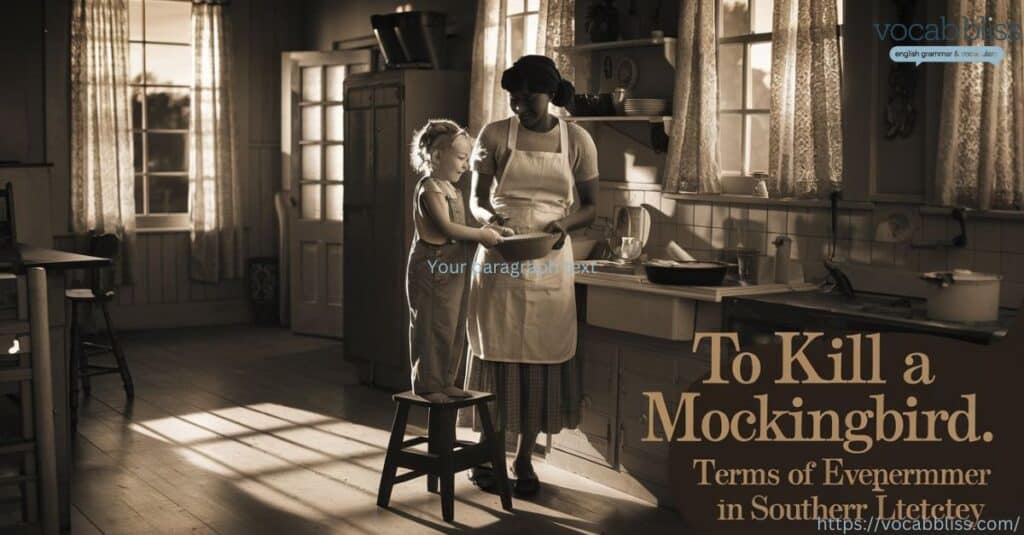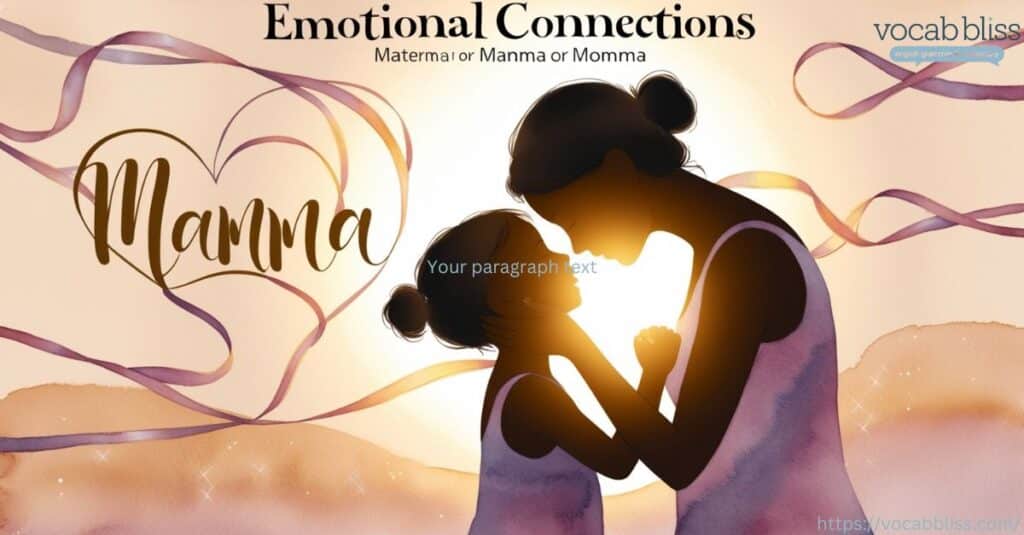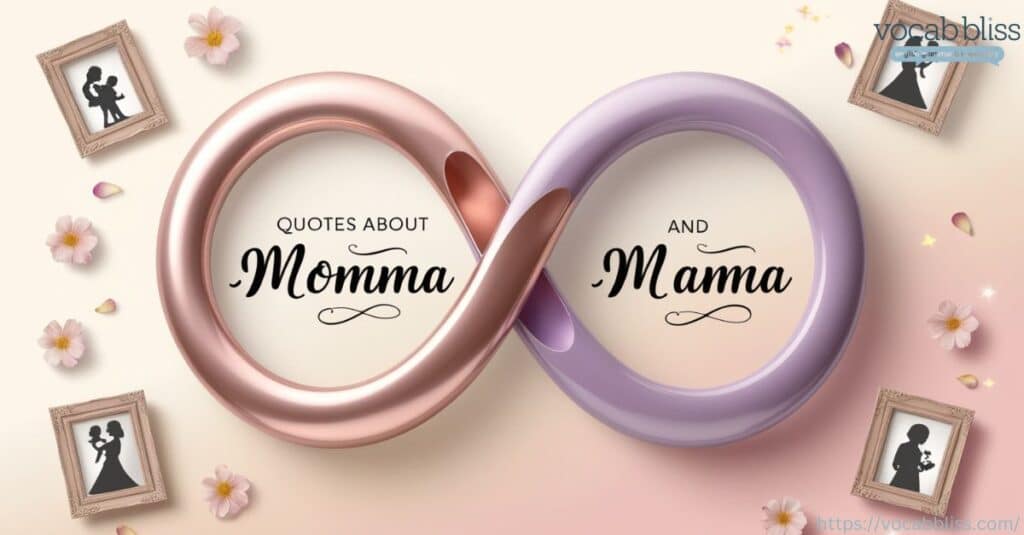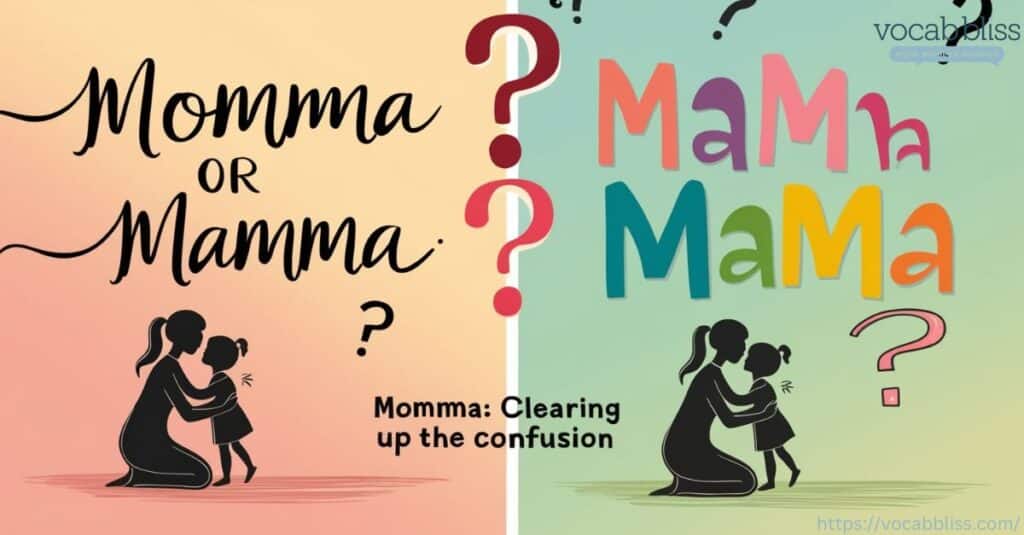The debate over “momma or mama” may seem trivial, but it reveals much about language, culture, and personal expression. Both terms are affectionate ways of addressing one’s mother, yet they differ in subtle but meaningful ways. Whether you’re curious about the “difference between momma and mama,” their usage, or cultural significance, this article will provide clarity.
⚡ Quick Summary
The terms “momma or mama” both represent affectionate ways of addressing a mother but differ in usage and cultural context. “Mama” is universal, appearing in various languages and commonly used by children, with a neutral yet warm tone. It’s widely recognized globally, often appearing in formal settings like “mamá” in Spanish. In contrast, “momma” is deeply rooted in American English, especially in the Southern U.S., where it reflects nostalgia and informal family bonds. Both terms carry emotional significance, shaped by personal experiences and regional influences, demonstrating the richness of language in expressing love for a mother.
Understanding the Basics
What Does “Momma” Mean?
“Momma” is an informal term used to address or refer to one’s mother. It originates primarily from American English and is often associated with regions where Southern dialects are prevalent. The term conveys warmth, familiarity, and a casual tone.
Key Characteristics of “Momma”:
- Origins: Rooted in English, with widespread usage in the U.S.
- Tone: Endearing and informal.
- Context: Commonly used in familial settings, especially in the American South.
Example:
In Harper Lee’s To Kill a Mockingbird, Scout often refers to her caretaker in the Southern style, which echoes terms like “momma.”

Continue reading: Long Term or Long-Term: Right Decision in Writing
What Does “Mama” Mean?
“Mama” has a broader linguistic footprint, transcending English to appear in numerous languages worldwide. This term often serves as one of the first words a baby learns, thanks to its simple phonetics.
In addition, it’s easy for young children to pronounce, making it a natural choice for early language development. Furthermore, the simplicity of the sound contributes to its widespread use across many different languages and cultures.
Key Characteristics of “Mama”:
- Origins: Found in various languages, including Spanish, Italian, and Swahili.
- Tone: Affectionate and universal.
- Context: Often linked to early childhood and baby talk.
Cultural Note:
In Spanish-speaking countries, “mamá” is a formal yet endearing term for “mother.” In Italian, “mamma” carries a similar sentiment.
Emotional Connections mama or momma

Childhood Memories and Family Bonds
Both “mama or momma” evoke deep emotional connections rooted in family life. However, the choice of one over the other often depends on personal upbringing and regional dialects. For instance, in the Southern U.S., “momma” is more common, while “mama” is widely used across other regions and cultures. As a result, these terms not only reflect affection but also highlight how language varies based on location and cultural context.
Why These Words Matter:
- Memories: For many, “mama” is the first word they learn, symbolizing comfort and security.
- Identity: These terms often reflect one’s family culture and linguistic heritage.
Case Study:
A study by linguist Dr. Laura Wright revealed that children raised in bilingual homes might interchange “mama” and “momma” based on context. As a result, this highlights how personal experiences and cultural background play a significant role in shaping language preferences. Furthermore, it demonstrates how flexible language can be, adapting to the environment in which it’s used.
The Emotional Resonance of Momma or Mama
The subtle differences in pronunciation—”momma” sounding softer, “mama” more direct—can change their emotional impact. Many use “momma” in nostalgic or affectionate contexts, while “mama” often feels timeless and global.
Common Confusions and Variations
Is It Mama or Momma?
Both terms are correct, but the choice depends on context and geography.
| Aspect | Mama | Momma |
|---|---|---|
| Formality | Universal and neutral | Informal and casual |
| Geographic Usage | Found globally | Common in the Southern U.S. |
| Cultural Context | Associated with childhood globally | Regional, familial expressions |
“Momma or Mamma”
While “momma or mamma” are often used interchangeably, “mamma” appears more frequently in European contexts, especially in Italian or Scandinavian languages.
Cultural Significance Across Communities
Synonyms for “Momma or Mama”
| Term | Language/Region | Meaning |
|---|---|---|
| Mamá | Spanish | Mother (formal) |
| Mamma | Italian | Mother |
| Mum | British English | Informal for mother |
| Ummi | Arabic | My mother |
| Mom | American English | Informal for mother |
| Mammi | Finnish/Scandinavian | Mother |
| Maa | Urdu | Mother |
| Ami | Urdu/Arabic | My mother |
How “Mama” Is Used in Muslim Communities
In many Muslim-majority countries, “mama” is less common than terms like “ummi” or “amma,” which derive from Arabic and other regional languages. However, “mama” might still appear in casual conversations influenced by Western culture.
Quotes About Momma and Mama

- “Mama was my greatest teacher, a teacher of compassion, love, and fearlessness.” – Stevie Wonder
- “A momma’s hug lasts long after she lets go.” – Unknown
- “Mama always said, life is like a box of chocolates. You never know what you’re gonna get.” – Forrest Gump
- “Momma told me there’d be days like this, but she never said they’d be this hard.” – Unknown
- “Mama is the name for God in the lips and hearts of little children.” – William Makepeace Thackeray
Side-by-Side Comparison of “mama vs momma”
| Feature | Momma | Mama |
|---|---|---|
| Informality | High | Moderate |
| Phonetic Simplicity | Moderate | High |
| Cultural Universality | Limited to English | Widespread |
Practical Usage of “mama vs momma”
Examples in Everyday Life:
- “Momma”:
- “Momma always said life was like a box of chocolates.” (From Forrest Gump)
- “Mama”:
- “Mama, just killed a man.” (Lyrics from Queen’s “Bohemian Rhapsody”)
In Literature and Pop Culture:
- “Momma” often appears in Southern Gothic novels.
- “Mama” frequently shows up in global cinema, reflecting its universal appeal.
Beyond the Words: A Deeper Look
Both “momma vs mama” illustrate the adaptability of language in expressing affection and familial bonds. They are more than words—they’re cultural markers that reveal where we come from and how we connect with loved ones.

FAQs: Momma vs Mama
1: Which term is more formal?
A: “Mama” is generally considered more universal and formal, while “momma” is casual and region-specific.
2: Is one grammatically correct over the other?
A: Both are correct but differ in usage. “Mama” is more widely recognized, while “momma” is a variant with cultural nuances.
3: Why do some families prefer one over the other?
A: Preferences often stem from regional accents, cultural heritage, and personal family traditions.
Conclusion
The choice between “momma or mama” isn’t just about phonetics—it’s a reflection of culture, emotion, and personal identity. Moreover, understanding their differences allows us to appreciate the richness of language and its ability to adapt to our lives. In addition, this distinction highlights how deeply language can connect us to our roots, while simultaneously revealing the flexibility with which we express affection and familial bonds. Whether you say “momma” or “mama,” both terms convey the same universal truth: a deep love for the woman who nurtures us.
By clearing up the “momma vs mama” confusion, we demonstrate how language shapes the way we express ourselves and connect with others. Moreover, understanding these subtle differences highlights the impact of regional and cultural influences on the words we choose. As a result, these terms do more than just define a mother—they reflect the unique emotional ties and traditions that shape our identities.
Explore further:
- Cacoon or Cocoon: Which Spelling is Correct?
- Priviledge Or Privilege: What Is The Correct Spelling?
- Drier or Dryer: What’s The Difference?
- Traveler or Traveller: Which Spelling is Right?

Jorge Phillips is an experienced blogger who writes for Vocab Bliss, sharing his passion for the English language. With a knack for simplifying complex grammar rules and a focus on commonly confused words, Jorge helps readers navigate the nuances of English with ease. His insights aim to make learning engaging and practical.







